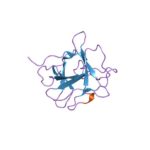
Oral mucositis is a common side effect of cancer treatments including chemotherapy, head and neck radiotherapy, and targeted therapy affecting at least 75% of high risk patients. Ulceration is the most significant phase causing pain of varying severity, and difficulties with eating, swallowing, and talking. This requires pain relief, nutritional support and sometimes hospitalisation and disruptions of the cancer therapy itself. Cytokines and growth factors may help the regeneration of cells lining the mouth, thus preventing or reducing oral mucositis and its negative effects
The aim of this Cochrane review was to assess the effects of cytokines and growth factors for preventing oral mucositis in patients with cancer who are receiving treatment.
Methods
Searches were conducted in the Cochrane Oral Health’s Trials Register, Cochrane Central Register of Controlled Trials (CENTRAL), Medline, Embase, CINAHL (Cumulative Index to Nursing and Allied Health Literature), CANCERLIT, The US National Institutes of Health Ongoing Trials Register (ClinicalTrials.gov) and the World Health Organization International Clinical Trials Registry Platform. Parallel-design randomised controlled trials (RCTs) assessing the effects of cytokines and growth factors for preventing oral mucositis in patients with cancer receiving treatment. The primary outcome was mucositis incidence of any severity.
Two authors independently screened studies abstracted data and assess risk of bias using Cochrane tools. Dichotomous outcomes were reported as risk ratios (RR) and 95% confidence intervals (CI) with continuous outcomes reported as mean differences (MD) and 95% CIs. Data was pooled using a random-effects meta-analysis. A narrative summary of adverse events was presented.
Results
- 35 RCTs involving 3102 patients were included.
- 13 studies were at low risk of bias, 12 unclear risk and 10 at high risk.
- For keratinocyte growth factor (KGF)
- There might be a reduction in the risk of moderate to severe oral mucositis in adults receiving bone marrow/stem cell transplantation after conditioning therapy for haematological cancers, RR= 0.89 (95%CI; 0.80 to 0.99) – 6 studies (852 patients) – low quality evidence [NNT=11, 95%CI;6-112].
- There might be a reduction in the risk of severe oral mucositis in this population, but there is also some possibility of an increase in risk, RR= 0.85 (95%CI; 0.65 to 1.11) 6 studies (852 patients) – low quality evidence.
- There is probably a reduction in the risk of moderate to severe oral mucositis in adults receiving radiotherapy to the head and neck with cisplatin or fluorouracil, RR= 0.91, (95%CI; 0.83 to 1.00) 3 studies (471 patients) moderate-quality evidence- NNT=12(95%CI;7 – ∞).
- It is very likely that there is a reduction in the risk of severe oral mucositis in this population, RR=0.79, (95%CI; 0.69 to 0.90) 3 studies (471 patients) moderate-quality evidence- NNT=7(95%CI;5 – 15).
- It is likely that there is a reduction in the risk of moderate to severe oral mucositis in adults receiving chemotherapy alone for mixed solid and haematological cancers, RR= 0.56, (95%CI; 0.45 to 0.70) 4studies (344 patients) moderate-quality evidence. NNT=4 (95%CI; 8 – 19).
- No compelling evidence of a benefit for any other cytokines or growth factors was identified.
- There was no evidence on children.
- There did not appear to be any serious adverse effects of any of the interventions assessed in this review.
Conclusions
The authors concluded: –
We are confident that KGF is beneficial in the prevention of oral mucositis in adults who are receiving: a) radiotherapy to the head and neck with cisplatin or fluorouracil; or b) chemotherapy alone for mixed solid and haematological cancers. We are less confident about a benefit for KGF in adults receiving bone marrow/stem cell transplant after conditioning therapy for haematological cancers because of multiple factors involved in that population, such as whether or not they received total body irradiation (TBI) and whether the transplant was autologous (the patients’ own cells) or allogeneic (cells from a donor). KGF appears to be a relatively safe intervention.
Due to limited research, we are not confident that there are any beneficial effects of other cytokines and growth factors. There is currently insufficient evidence to draw any conclusions about the use of cytokines and growth factors in children.
Comments
This review demonstrates encouraging results from KGF in reducing the risk of oral mucositis in adults receiving either radiotherapy to the head and neck with chemotherapy (cisplatin or fluorouracil), or chemotherapy alone for mixed solid and blood cancers. The authors highlight that much more research in needed in this area and that a number of interventions have shown promise, but limited numbers of studies and small sample sizes limit conclusions.
The Cochrane collaboration have published reviews in the area previously and are currently updating the reviews following the same intervention categories as the Mucositis Study Group (MSG) of the Multinational Association of Supportive Care in Cancer/International Society of Oral Oncology (MASCC/ISOO). These are:-
- basic oral care/good clinical practice;
- growth factors and cytokines;
- anti-inflammatory agents;
- antimicrobials, mucosal coating agents, anaesthetics, and analgesics;
- laser and other light therapy;
- cryotherapy;
- natural and miscellaneous agents;
- amifostine.
Links
Primary Paper
Riley P, Glenny AM, Worthington HV, Littlewood A, Fernandez Mauleffinch LM, Clarkson JE, McCabe MG. Interventions for preventing oral mucositis in patients with cancer receiving treatment: cytokines and growth factors. Cochrane Database of Systematic Reviews 2017, Issue 11. Art. No.: CD011990. DOI: 10.1002/14651858.CD011990.pub2.
Other references
Cochrane Oral Health Group Blog
Dental Elf -15th Mar 2017
Oral mucositis in cancer patients: no benefit from chlorhexidine mouthwash
Picture Credits
By Jawahar Swaminathan and MSD staff at the European Bioinformatics Institute [Public domain], via Wikimedia Commons
